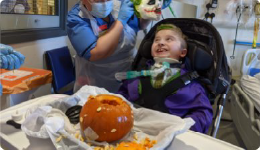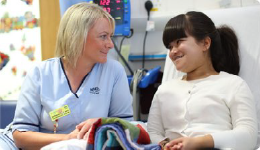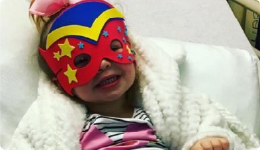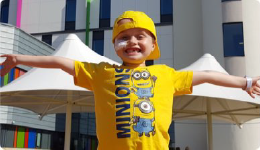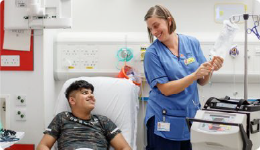It is common at this stage for children to start rejecting foods they liked and to refuse new foods. This is a normal part of development called the Neophobic phase. It is important to continue to offer a variety and try to keep meal times fun and relaxed!
Below are some top tips to reduce stress at mealtimes.
- If you are relaxed and having fun your child will be too.
- Turn off the TV, tablet and phones, make mealtimes fun without distractions.
- Eat together if you can, be a good role model.
- Keep mealtimes to no longer than 30 minutes.
- Getting messy is really important, using all the senses to explore food helps children to try new foods.
- Give them foods you know they will eat with something new on the side.
- Get them involved in shopping and preparing food, it can be as simple as washing the fruit and vegetables before you chop them or choosing a new fruit or vegetable to try at the shops.
- Keep offering three regular meals and two or three healthy snacks.
You can continue to breastfeed for as long as you and your childlike. All other drinks should now be offered from a free-flow or open cup. Tap water and pasteurised full fat cow’s milk are the best drinks for your child. If you are thinking about using an unsweetened calcium fortified milk alternative (such as soya, nut, oat, hemp, coconut based milk alternatives) as a main drink then great care is needed as these are lower in energy and other nutrients than animal milk. You should seek advice from a Health Visitor or GP before using these as the main milk drink. Rice milk should not be given until your child is over four and a half years old. For more information try Infant Milks from the First Steps Nutrition Trust website.
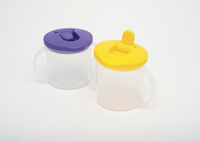
You can find more tips and ideas using the links below:
- Parent Club Tips if your toddler is a fussy eater.
- First Steps Nutrition Trust Eating well in the early years
- British Dietetic Association


 Every child grows and develops in their own time. If you are worried about your child's development then speak to your Health Visitor, Family Nurse or GP.
Every child grows and develops in their own time. If you are worried about your child's development then speak to your Health Visitor, Family Nurse or GP.



